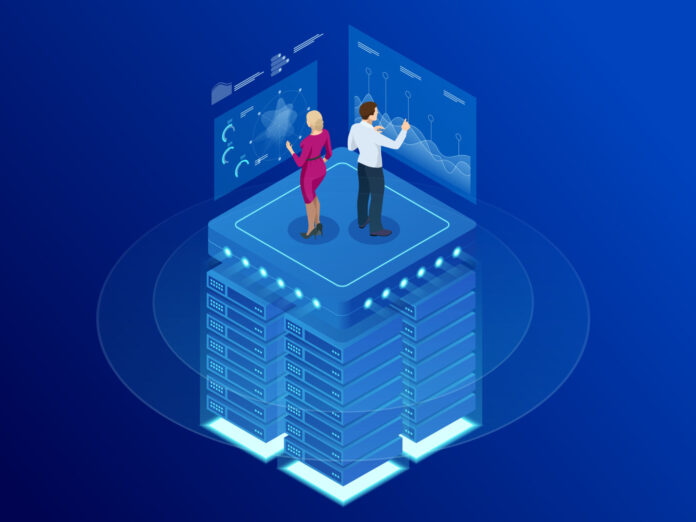Technology data centers are a type of data center that different companies use to manage their technology infrastructure. IT data centers are critical to enterprises in this digital age as they can store information digitally, access it when they need it, and protect it from dangers and cyber threats. IT data centers have different roles. Network administrators, software developers, computer operators, etc.
There are also various certifications in the field of IT data centers. If you’re interested in a career in the IT data center space, read some helpful tips and tricks to get you on the right track.
What Is An IT Data Center?
An IT data center (ITDC) is a facility where an organization stores and processes IT-related data. It is typically used to house servers, storage devices, and other computing devices. ITDCs can be deployed on-premises or in the cloud. It is becoming increasingly important for organizations to meet the growing demand for IT services.
As a result, more and more focus is being placed on expanding data centers to meet this demand. IT data centers can offer enterprises several benefits.
For example, it helps ensure the safety and availability of critical data, whether your business is online or offline. In addition, enterprises can efficiently process and analyze large amounts of data.
Therefore, ITDCs are becoming more and more common in today’s environment. They offer many advantages over traditional on-premises systems, such as reduced costs, increased flexibility, and increased scalability.
IT Data Center Overview
An IT data center (ITDC) is a facility where an organization stores and processes IT-related data. It is typically used to house servers, storage devices, and other computing devices. ITDCs can be deployed on-premises or in the cloud.
It is becoming increasingly important for organizations to meet the growing demand for IT services. As a result, more and more focus is being placed on expanding data centers to meet this demand. IT data centers can offer enterprises several benefits.
For example, it helps ensure the safety and availability of critical data, whether your business is online or offline. In addition, enterprises can efficiently process and analyze large amounts of data.
Therefore, ITDCs are becoming more and more common in today’s environment. They offer many advantages over traditional on-premises systems, such as reduced costs, increased flexibility, and increased scalability.
IT Data Center Jobs
IT data center specialists are essential for businesses to meet the ever-increasing demand for digital services. They provide a secure and reliable environment for employees to work online and have access to information at all times.
Facilities are usually centrally located, reducing the chance of data loss or mismanagement. IT data centers need to be properly managed to ensure operational efficiency and adequate security. You also need to have the right tools and equipment to meet your needs.
For example, you need a reliable network connection to be able to connect all your devices to each other.
You also need a reliable power source that is independent of external sources such as generators and solar panels. More importantly, you need a robust security architecture to prevent unauthorized access and data theft.
IT Data Center Key Responsibilities
In addition to these key responsibilities, IT data centers must also be able to provide support services such as backup and disaster recovery solutions. IT data center obligations and tasks.
As we know, IT data centers are essential for businesses to keep up with the ever-increasing demand for digital services.
It provides a secure and reliable environment for employees to work online and have access to information at all times. Facilities are usually centrally located, reducing the chance of data loss or mismanagement.
IT data centers need to be properly managed to ensure operational efficiency and adequate security. You also need to have the right tools and equipment to meet your needs.
For example, you need a reliable network connection to be able to connect all your devices to each other. You also need a reliable power source that is independent of external sources such as generators and solar panels.
More importantly, you need a robust security architecture to prevent unauthorized access and data theft. In addition to these key tasks, IT data centers must also be able to provide support services such as backup and disaster recovery solutions.
The Importance of Effective IT Data Centers
IT data center specialists have different roles, each with its own responsibilities. The following list describes the most common tasks and tasks in IT data centers.
You are responsible for hosting and maintaining all of your company’s computer systems, including servers, workstations, laptops, and mobile devices.
It also plays an important role in the operation of enterprise networks. Responsible for storing all company data and files.
This includes not only those created on corporate devices, but also documents, emails, and other types of data generated by non-corporate users. You may be responsible for managing various aspects of IT security.
Firewall configuration, antivirus installation and update, user access control, and encryption.
Responsible for tracking various metrics related to IT usage and performance. These metrics include CPU utilization and response time, disk space usage, network traffic levels, and server uptime. You can take charge of maintenance tasks such as server cleanup and software reinstallation if necessary.
Point To Note
Finally, here are five technical tips and tricks to becoming an IT data center expert.
- Understand the basics of network architecture and configuration.
- Describes different types of storage devices and how to use them.
- Keep up-to-date with the latest security measures and protocols.
- Learn troubleshooting and problem-solving techniques.
- Enhance your knowledge and skills with the right tools and technologies.





